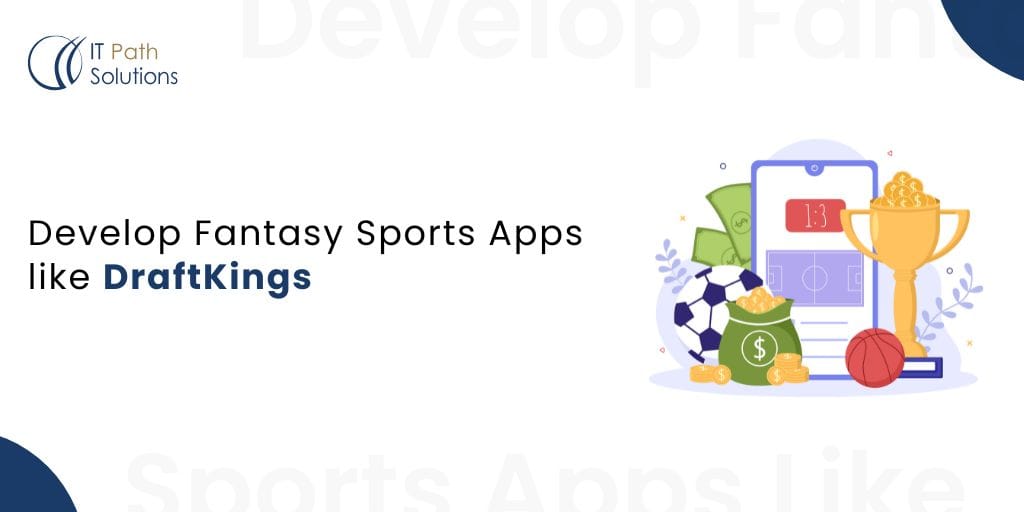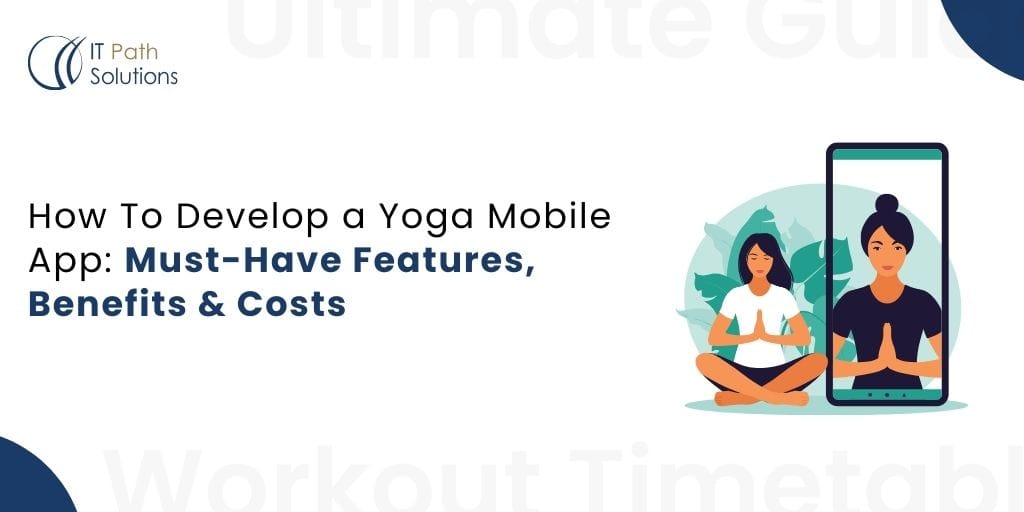How To Build Marketplace App In 2025

With half of online shopping happening today on marketplace platforms, developing marketplace apps can be a significant opportunity. However, big brands like Amazon and eBay dominate the market. it might feel overwhelming for new businesses to break into the eCommerce space. However, there are still many niche markets that remain underserved, and new opportunities arise every day.
So if you want to build marketplace app and are interested to learn more about this exciting field, read our article and discover how to build a marketplace app that stands out from the competitions.
However you must be aware of your competitions and their market value before you start developing your own marketplace app.
As an experienced mobile app development company, we understand your requirements and can assist you in turning your online marketplace app concept into reality. This blog will provide a comprehensive guide to create marketplace apps, ensuring that your app stands out in the competitive market.
What is a Marketplace App?
An online marketplace is a type of ecommerce website or app, that offers products and services by third party provider. A marketplace app works as a virtual marketplace where individuals or businesses can list and showcase their bunch of products and services and businesses can implement amazing custom features by hiring app development companies, as well as prospect customers can browse, search and make purchases directly through the app.
A marketplace app benefits users in the following ways:
- Enhances convenience for a seamless shopping experience.
- Provide secure transactions through reliable payment gateways and transaction processing.
- Saves time by centralizing various products and services in one place.
- Provide competitive prices, as multiple sellers on the platform provide discounts, deals, and special offers.
- Offers Wide variety of products and services accessible by the marketplace app.
As reported by Statista, smartphones played a significant role in the first quarter of 2023, contributing to 72% of retail sales in the USA and generating 61% of online shopping orders.
Types of MarketPlace

Business-to-business marketplace
B2B marketplace apps allow companies to provide goods and services to other companies. These apps are typically used to create listings to sell their wholesale products or services to other businesses and also browse listings to find products or services they need for their own operations.
Business-to-consumer marketplace
B2C marketplace connects business with consumers, offering a platform for the retailer to list their products and services and for consumers to browse and purchase them.
Peer-to-peer marketplace
P2P marketplace apps connect people with certain products to people who want to buy. Buyers can explore the listings and connect directly with sellers to negotiate the terms of the sale.
Vertical marketplace
With these marketplace mobile apps, customers can hire specialists that focus on a specific niche or industry, such as cleaning, home repairs, office administration, moving, etc.
Horizontal marketplace
Horizontal marketplaces are online platforms or apps that offer a wide range of products and services across multiple categories, without specializing in a specific niche. eBay or Amazon are horizontal marketplaces.
How to Build a Marketplace App 2025
Let’s discuss more vital steps that will help you to build marketplace app platform.
Define the marketplace type and do the research
Secondly, plan your marketplace app effectively. This requires thoughtful consideration of several factors, including identifying your target audience, choosing a scalable business model, designing an intuitive user experience, and incorporating essential features. Here’s a step-by-step guide to help you successfully plan your marketplace app:
Before you start your marketplace app development, it’s crucial to determine the type of marketplace you want to create.
Then, do the market research – a vital step in building a successful marketplace app. These processes help you to understand your target audience and assess the competitive landscape. If you aim to create a marketplace that generates real income, market research is a crucial step you cannot afford to overlook. Start by clearly defining your target audience. Understand their demographic, geographic, and psychographic profiles to pinpoint the characteristics of your ideal customers.
Next, conduct a thorough analysis of your competitors. Evaluate their strengths, weaknesses, target audience, pricing strategies, and marketing approaches. This will help you discover market gaps and identify opportunities to differentiate your marketplace, giving you a competitive edge.
Plan Your Monetization Model
You should select the monetization model of the app in advance, as the selected marketplace business model affects further mobile app development process, and tech stack. The way you can monetize your marketplace:
- Commission fees for every transaction
- Listing fees – these marketplace business models that charge sellers for listing their products or services on the app.
- The subscription fee for sellers for a certain usage time
- Selling advertising space
Basically the monetization model depends on your business needs and target audiences, however, make sure to choose the right monetization model for maximum and quick return on your investments.
Choose App Development Company For Your Marketplace App
Now that you’re ready to bring a marketplace app idea into reality, you need to choose a reliable online mobile app development company. You can save time and money by leveraging their expertise. Development companies have expert developers teams that use the latest technologies, industry insights, and design to build marketplace app. Hire a top-notch offshore app development company that carries out your app development process seamlessly.
If you hire IT Path Solutions’s development team, we have expertise and experience in delivering marketplace apps as per your custom requirements. Every project at IT Path Solutions is handled by a dedicated team that includes experienced React native, iOS and Android developers, creative UI/UX designers, Quality analyst, and a project manager. This dedicated team approach ensures smooth coordination and a focused effort toward your eCommerce project.
Focus on the UI/UX aspect
With the next step, it is time to begin to build marketplace app. The first part of that process is to design the UI/UX of your application based on the target audience, goals, and features you’ve determined.
Especially if you are developing a multi-vendor app, let your app development company create aesthetics and functionality that provide effortless navigation and engagement. A well-designed UX and modern UI can help you receive more valuable feedback from the community and make a positive first impression on your target audience.
Start Development For Your MarketPlace App
At this stage, your mobile app development team starts coding the features and functionalities of your marketplace application. They build backend and frontend development of your market, establishing a robust foundation for the app’s smooth operation and seamless functionality.
The collaborative efforts of backend and frontend development to build marketplace app that caters to the needs of both buyers and sellers, delivering a smooth and efficient user experience.
During this process, the team ensures to build marketplace app that is using best coding practices and manageable, and scalable. To keep the project aligned with your vision, we encourage active client involvement throughout the development phase.
Test and Debug Your Marketplace App
One of the most challenging phases of the marketplace app development process is testing and debugging. At this time you need to ensure your app function perfectly matches with desired specification and provide seamless user experience while the process of testing and debugging.
During this phase QA developers apply various testing methods like unit, usability, performance, security, compatibility, and user acceptance testing. The QA team ensures your marketplace platform app is completely bug-free before approving it for the launch process.
Launch Your Marketplace App
When your marketplace app is ready for launch, mobile app developers will handle its deployment across various online platforms, ensuring it meets your specific requirements. However, before the release, it’s crucial to comply with the technical standards and guidelines set by the respective app stores.
Whether it’s the Apple App Store or the Google Play Store, developers will expertly manage the entire deployment process for your marketplace app. The approval process typically takes 2 to 5 business days for the Apple App Store, while the Google Play Store may take up to 7 business days for evaluation.
Significant Features of Successful Marketplaces App
Here’s a range of key features of marketplace apps that ensure the success of the platform and improve user engagement
| Features Name | Description |
| User registration | Buyers can create accounts by adding personal information. Keep in mind that buyers need to feel confident that their personal information is being handled securely and responsibly when they register an account. |
| Product & Service Listing | Build a comprehensive product catalog where sellers can list their product and services, complete categories, tag, filters that are easily accessible for buyers. |
| Multi Vendor Support | This feature supports multiple vendors and allows them to sell their product and service. |
| Vendor Payment System | Build a secure and systematic payment system for vendors that support multiple payment methods and currencies. |
| Order Management | Using these features, vendors can track order, process, ship and enhance efficiency and customer satisfactions. |
| Vendor Analytics System | With these features, vendors can monitor in-depth sales, customer behavior, reviews, and more. |
| Cross-Selling and Upselling | Integrate smart algorithms to promote cross-selling and upselling, vendors can analyze customer behavior and suggest relevant products. |
| Dynamic Pricing Strategies Powered by AI | Leverage AI algorithms to optimize pricing dynamically, considering market trends, customer demand, and competitor rates to maximize profitability. |
| Bulk Product Upload | A feature that allows vendors to upload their product in bulk, as well as they can streamline the listing process and save time. |
| Reviews and ratings | Facilitate buyers can leave feedback on product and services they have purchased and the overall transaction experience with the seller. |
| Virtual Try-On | Implementing AR/VR technology in the app, users can virtually try on products before purchasing, enhancing the confidence and decision-making process for buyers. |
Technology Stack Used in Marketplace Mobile App Development

Finally
In conclusion, how to build an online marketplace app might seem complex at first for startups and SMBs, but with the right strategy and a skilled team, it becomes a highly rewarding investment. By following the steps in this guide, you can build an app that stands out in today’s competitive market.
At IT Path Solutions, with extensive experience in marketplace projects, we have successfully helped startups and entrepreneurs bring their marketplace ideas to life. If you’re planning to build a marketplace app, share your ideas with our experts. Our team is always ready to help transform your vision into reality and create a marketplace app that fosters growth and success.
 Healthcare
Healthcare  Education
Education  Real Estate
Real Estate  Logistic
Logistic  Themes
Themes
 Plugins
Plugins
 Patterns
Patterns






